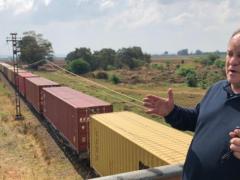As the proposed implementation of the new Administration Adjudication of Road Traffic Offences (Aarto) Act draws closer, arguments are once again being put forward about its constitutionality or lack thereof.
The act is due to be implemented countrywide on June 1.
Howard Dembovsy of the Justice Project South Africa has for some time been a vocal critic, claiming that in terms of the Act transgressors are presumed guilty until proven innocent.
He told FTW ahead of the signing of the bill into law by President Cyril Ramaphosa last year that if the legislation was rolled out nationally “it will be a disaster of epic proportions”.
“One of the biggest concerns around the bill, shared by legal bodies and industry, is the complete removal of the courts from the Aarto process,” he told FTW at the time, “making it compulsory to make written representations to the Road Traffic Infringement Authority (RTIA), which is funded almost entirely by revenue collected by traffic fines.
“The entire Aarto Act is predicated on the presumption of guilt rather than innocence,” said Dembovsky. “Everything within that framework is aimed at finalising matters without giving the person the opportunity to challenge the accusers.”
Despite efforts by political parties, businesses and lobby groups in Gauteng to block the impending implementation on the grounds that it will not only negatively affect freight businesses but also pave the way for further corruption, the legislation is going ahead.
The impact of the new road traffic regulations on drivers and on businesses relying on transport is of particular concern. “This law is putting businesses at risk as truck drivers working for small businesses could lose their jobs – because their licences will be suspended for three years if there are a few infringements,” an industry source said.













